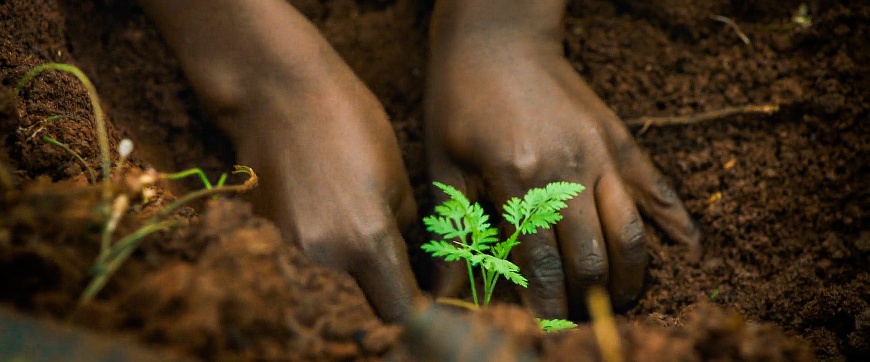Expert talk
The cinema documentary "The Fever: The Fight Against Malaria" celebrated its successful online cinema premiere on Sunday, 25 April on World Malaria Day with more than 1,500 viewers! The event was broadcast live from the Alte Kino Ebersberg. The film stream (English, German, French, audio description) and the live talk with experts were free of charge for audiences worldwide. Numerous enthusiastic viewers also took part in the chat afterwards by asking the experts questions. Video of the livetalk coming soon here!
"The Fever" shows how researchers in East Africa may be saving countless lives from malaria with the medicinal plant Artemisia annua. But why do they encounter fierce resistance from pharmaceutical companies in their search for local solutions? Moderator Peter Kreysler discussed the controversial question of the film with director Katharina Weingartner and prominent experts, who were called in. Among them was Dr. Grace Nambatya Kyeyune from the Ministry of Health in Uganda, who as a researcher in her country has contributed significantly to the recognition of herbal medicine. Other special guests were Prof. Peter Seeberger from the Max Planck Institute of Colloids and Interfaces, who is currently researching Artemisia against Covid-19, as well as Dr. Tankred Stöbe from Doctors without Borders and Dr. Anselm Schneider from the German Society for International Cooperation. At the end, the charismatic film protagonist Rehema Namyalo surprised the premiere audience with a greeting video from Uganda.
Here you can find out more about the talk guests:
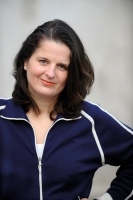
Katharina Weingartner,
Director
Katharina Weingartner, born 1964, is an Austrian director, writer and radio producer. She is co-founder of the production companies Knock Off (New York) and pooldoks (Vienna). After many years in New York, Katharina Weingartner now lives in Vienna again. For her film "The Fever: The Fight Against Malaria", she goes to an area she calls the "ground zero" of malaria: the countries around Lake Victoria in eastern Central Africa. In Uganda and Kenya, she finds people who are using local strategies to fight malaria.
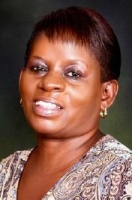
Dr. Grace Nambatya Kyeyune,
Research Institute for Natural Chemotherapeutics/Ministry of Health Uganda
Dr. Grace Nambatya Kyeyune works at the Natural Chemotherapeutics Research Institute of the Ministry of Health in Uganda. For the past ten years, she has been committed to changing the negative perception of the people of Uganda towards herbal medicine. She has set herself the goal of getting Ugandans to trust and use herbal medicine. With success: according to Nambatya, trust in herbal medicine has increased by over 50% today. The reluctance of many Ugandans to use herbal medicine, she says, is due to the fact that there is a certain colonial rest mentality. For many years, the locals were advised against it in favour of western medicine. The Natural Chemotherapy Research Laboratory teaches people about herbal medicine and also checks the quality of the products, among other things, to make sure they meet health standards.
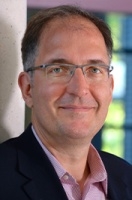 Prof. Dr. Peter H. Seeberger,
Prof. Dr. Peter H. Seeberger,
Max Planck Institute for Colloids and Interfaces
Peter H. Seeberger has been Director of the Department of "Biomolecular Systems" at the Max Planck Institute of Colloids and Interfaces in Potsdam since 2009. His research group conducts research at the interface between chemistry and biology. For the development of a particularly efficient chemical process for the production of artemisinin, the American Chemical Society (ACS) recently awarded him and two colleagues the "ACS Award for Affordable Green Chemistry". "In this way, affordable antimalarial drugs can be produced, and at the same time our process opens up new possibilities for being able to produce other drugs sustainably and yet more cheaply than before," says Peter H. Seeberger. In addition to biological work on the breakdown of signal transmission, the focus is on research into the material properties of complex sugars. Basic research in the field of immunology has contributed to the development of vaccines. Vaccines against hospital germs are now close to clinical development. Seeberger holds a professorship at the Free University of Berlin and is an honorary professor at the University of Potsdam.
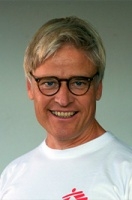 Dr. Tankred Stöbe,
Dr. Tankred Stöbe,
Doctors Without Borders/MSF
Dr. Tankred Stöbe's first project with Médecins Sans Frontières/Doctors Without Borders (Germany) was in Thailand/Myanmar in 2002, in 2004 he was elected to the German Board of Médecins Sans Frontières and from 2007 to 2015 he was President of the Section. From 2015 to 2018, Tankred was an elected member of the International Board. He works as a specialist in internal and intensive care and emergency medicine in a hospital and as a senior emergency physician in Berlin. His more than 20 missions with MSF have most recently taken him to Syria, a rescue ship in the Mediterranean, Libya, Gaza/Palestine, Venezuela, Asia (Corona Pandemic 2020), Yemen and Malawi (Corona).
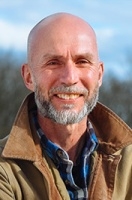 Dr. Anselm Schneider,
Dr. Anselm Schneider,
German Society for International Cooperation/Hospital Partnerships
Dr. Anselm Schneider heads the Federal Government's "Hospital Partnerships" funding programme. He is a public health physician and has worked in international cooperation for 25 years. On behalf of the German government and the World Bank, he advised governments on the African continent for over 15 years. In an honorary capacity, he heads a Swiss foundation that is the sponsor of a small hospital in Madagascar.
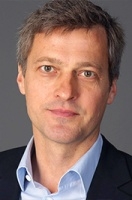 Peter Kreysler,
Peter Kreysler,
Journalist and Documentary Filmmaker
Peter Kreysler lives in Berlin and has been working as an author and investigative journalist for radio and television since 1999. As a journalist, he has travelled the world for many investigations, always on the lookout for the formative political and economic transmission belts of our world. He was awarded the Ernst Schneider Prize for his report "Brilliant Deals: The International Diamond Trade" (DLF/WDR5) and the SALUS Prize Radio Feature "The DNA Revolution" in 2018.



